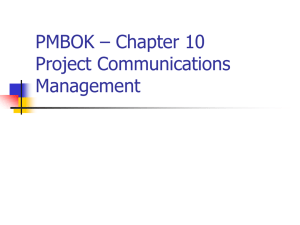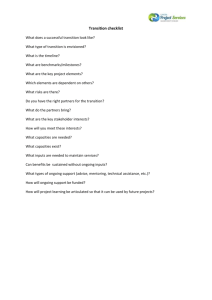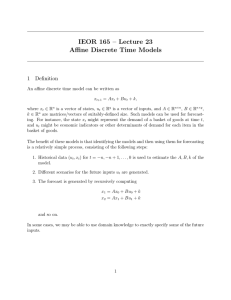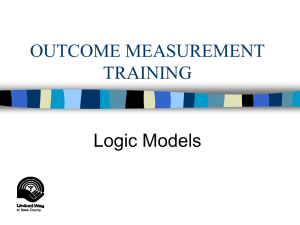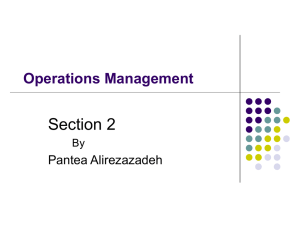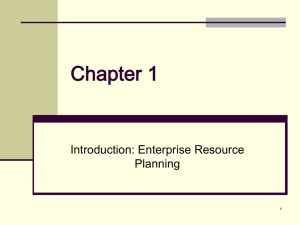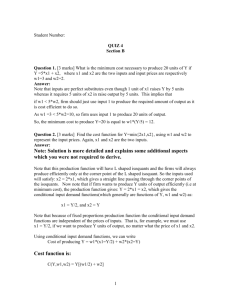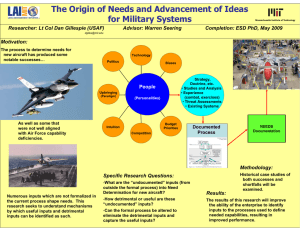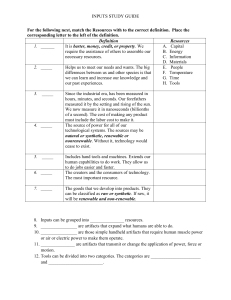Productivity
advertisement
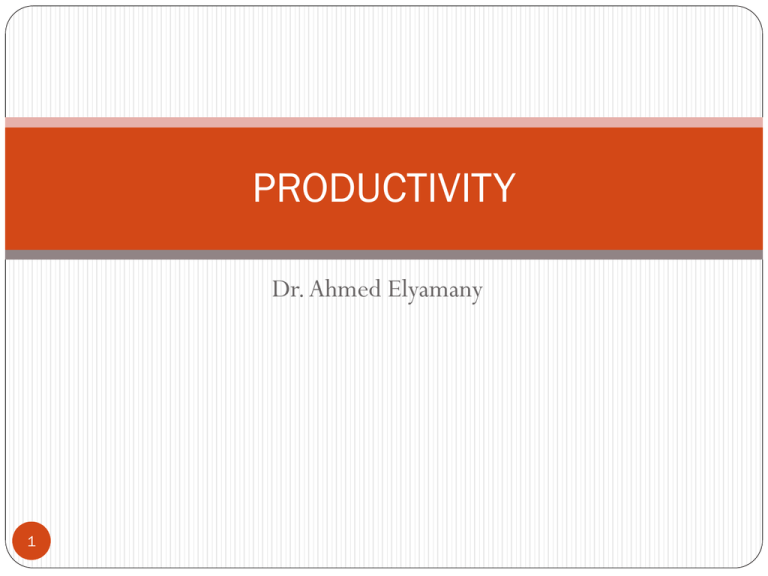
PRODUCTIVITY Dr. Ahmed Elyamany 1 Expected Learning Outcome Define productivity Differentiate between production rate, efficiency, effectiveness, performance or production. Know the factors affecting productivity. Understand the general productivity model. 2 Productivity definition Productivity is the proportion obtained by dividing output by one of the factors of production input. 3 Definitions Efficiency ( )كفاءةin general describes the extent to which time or effort is well used for the intended task or purpose. Effectiveness ( )فاعليةmeans the capability of producing an effect. 4 Definitions Production is concerned with the activity of production 5 goods and services. Production rate is the quantity of total production produced in unit of time. Productivity is the ratio of total output produced to the input of one element of production. Total productivity is the ratio of total output produced to the total inputs used. It is not necessary that the greater the production, the greater the productivity. General Productivity Model INPUT Capital Labor Material Equipment Energy 6 SYSTEM Transformation OUTPUT Goods Services How to Improve the Productivity Increase output + decrease input Increase output + same input Same output + decrease input + = + = - High rate of output increase + low rate of input increase Low rate of output decrease + high rate of input decrease. 7 How to Improve the Productivity Generally…… Replace labor with equipment Replace old equipment with modern equipment For developing countries….. Lack of money need for management to increase labor productivity. 8 Work Time Component Actual Work Time Total Work Time Basic Work Time Time consumed in construction if design and specification are correct, equipments are efficient. 9 Unnecessary Work Time Extra work due to design mistakes Extra work due to inefficient construction methods Inefficient Time (Poor Management) Lost time due to labor shortage Lost time due to exceptional conditions Construction Productivity Facts Labor productivity Reach max on Sunday Decreases after Tuesday and reach min on Thursday 10 Best time for labor production is 10am – 12am Labor need 10-15% of work time as rest time In repetitive jobs…. Labor productivity decrease after 60:70 min Average lift capacity is 41,36 kg Labor productivity is min before lunch time and at the end of the day labor productivity is max when works 5 days a week, 8 hours a day Productivity of first shift is more than second shift Labor productivity affected by overtime for long time Accidents happen during unproductive time, productive time is safe Most injuries happen on Saturday and Thursday Standard of Living and Productivity Relation between standard of living and productivity: Efficient use of inputs decrease the cost of production The production increases Amount of output increases. Cost of input decreases . Productivity increases. 11 Total and Partial Productivity Total productivity is “the ratio of the total output produced to the total inputs used” Total Productivity = Total Productivity = 12 Total output Total inputs Total output (labor+ material+ equipment) inputs Total and Partial Productivity Partial productivity is “the ratio of the total output produced to the input of one element of production” Partial Productivity = Labor Productivity = Material Productivity = 13 Total output Input of one production element Total output Labor input Total output Material input Highest construction productivity Converting all productive elements inputs into output in order to deliver a quality construction product, achieve maximum cost effectiveness, through the maximum efficient use of resource. 14 Measures of productivity Productivity is not simply performance and not the efficient use of resources , but a combination of both. Its measurement is carried out by means of ratios: Output variables: units produced; products sold; tasks completed; or revenue obtained. Input variables: the number of people employed; hours worked; capital used; material costs. 15 Labor productivity measures a) Average labor productivity: Labor Productivity = Total output Labor input Average Labor Productivity = 16 Total output Man-hours of Labor input Labor productivity measures b) Marginal labor productivity: A measure of the impact on production of the addition of one more unit of labor while keeping other factor fixed. marginal Labor Productivity = 17 Increase in output One unit of Man-hour Example 1 A construction company produces 1,000 blocks by employing 40 workers at 7 hours/day for one month. Assume this month has a 25 working days. What are the production rate and productivity of labor? 18 Example 1 Production rate = 1,000 Blocks/month Partial Productivity = Labor productivity = Total output Input of one production element 1,000 Blocks 40 workers x 25 days x 7 hrs/day Labor productivity = 1 Block/ 7 man-hours. 19 Example 2 Suppose this company increased its production to 1,500 Blocks by employing 30 additional workers at 7 hours/day for one month, this month has a 25 working days. What are the production rate and productivity of labor now? 20 Example 2 Production rate = 1,500 blocks/month 1,500 Blocks/month Labor productivity = (40+30) workers x 25 days x 7 hrs/day Labor productivity = 1 block / 8.2 man-hrs The production of blocks has gone up by 50% The labor productivity gone down by 17% Increased production does not mean increased productivity. 21 Questions Contact: Dr. Ahmed Elyamany 019-4100-824 a2hyamany@yahoo.com 22

